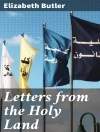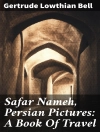In ’Haifa; or, Life in Modern Palestine, ’ Laurence Oliphant presents a vivid and poignant portrayal of Palestine during the late 19th century. Through a blend of travel writing and sociopolitical commentary, Oliphant captures the intricate tapestry of daily life in Haifa, offering readers insights into the diverse cultures, religions, and landscapes of a region undergoing significant transformation. His lyrical style and keen observations provide not only a snapshot of the place but also reflect the broader historical currents at play, juxtaposing the vestiges of Ottoman rule with the burgeoning presence of European influence and Jewish immigration. Laurence Oliphant was a multifaceted figure—traveler, diplomat, and theologian—whose diverse experiences informed his writings. His Christian Zionist beliefs and deep interest in the geopolitical and spiritual dimensions of Palestine propelled him to explore the region extensively. Oliphant’s background in British politics and his engagement with the ideas of his time positioned him as a unique voice, offering a perspective that combined personal narrative with broader political implications. This book is essential for those interested in historical narratives, travel literature, and the interplay of culture and politics in the shaping of modern identity. Oliphant’s work serves as a compelling lens through which to understand the complexities of Haifa, making it a valuable resource for scholars and casual readers alike.
Om författaren
Laurence Oliphant (1829–1888) was a British author, international traveler, diplomat, and Christian mystic. His career was as diverse as his literary output, which encompassed genres such as travel literature, novels, and political commentary. Oliphant’s extensive traveling informed his vivid description of the places he visited, exemplified in his work ’Haifa; or, Life in modern Palestine’ where he chronicles his experiences and observations in the Holy Land. Not just a mere account of his travels, the book reflects Oliphant’s keen interest in social and religious aspects of the regions he explored, thus providing contemporaries and later scholars with valuable insights into the dynamics of modern Palestine in the late 19th century. Oliphant’s writing style often interweaves detailed narrative with personal reflections, offering a window into the era’s British attitudes and preoccupations with Eastern societies. Besides his travelogues, Oliphant was known for advocating unconventional social and religious ideas, which he also expressed through his literary endeavors. His distinctive blend of adventure, spirituality, and sociopolitical contemplation makes Oliphant a unique figure in Victorian literature, and his works continue to be of interest for those studying the interplay between British imperial culture and the diverse societies it encountered.












